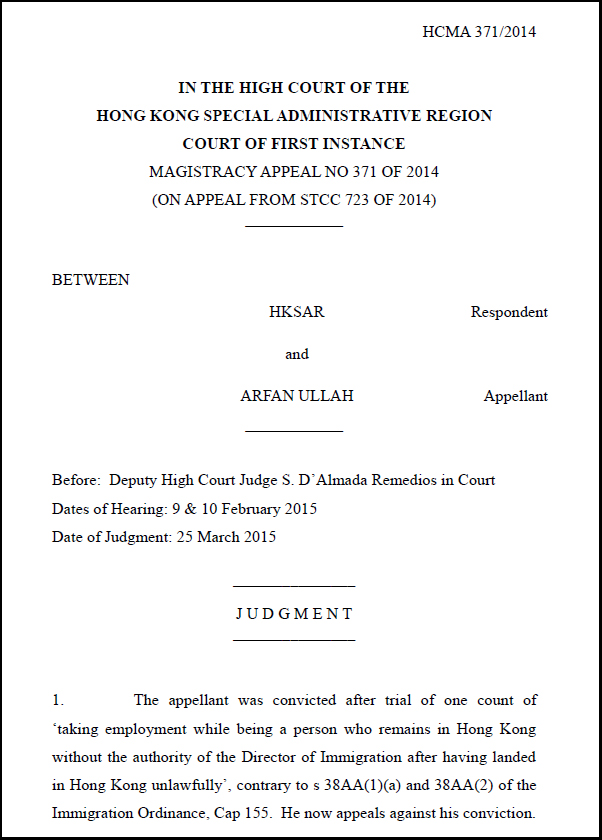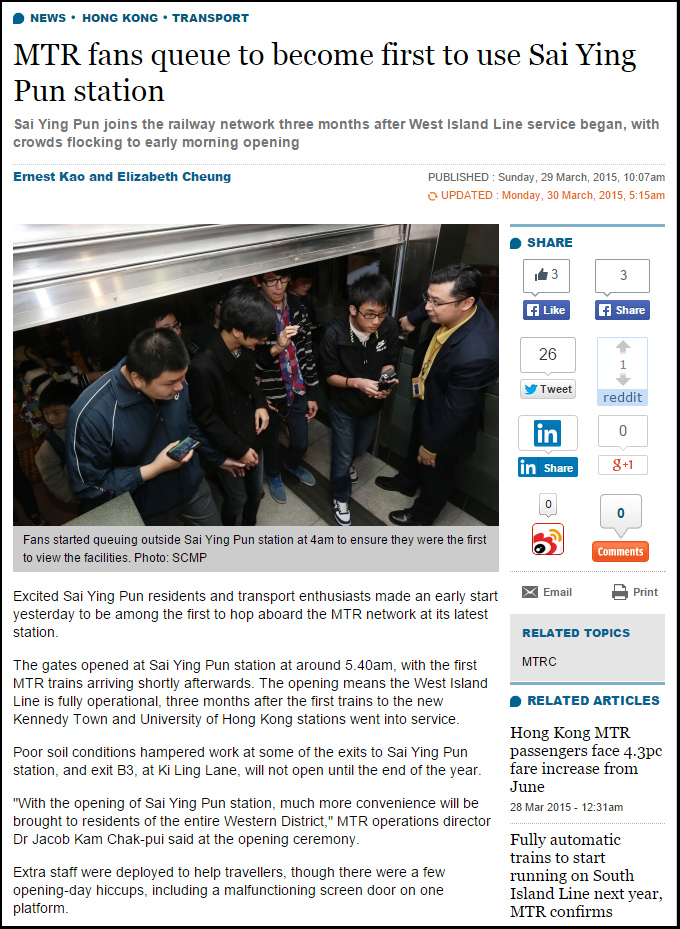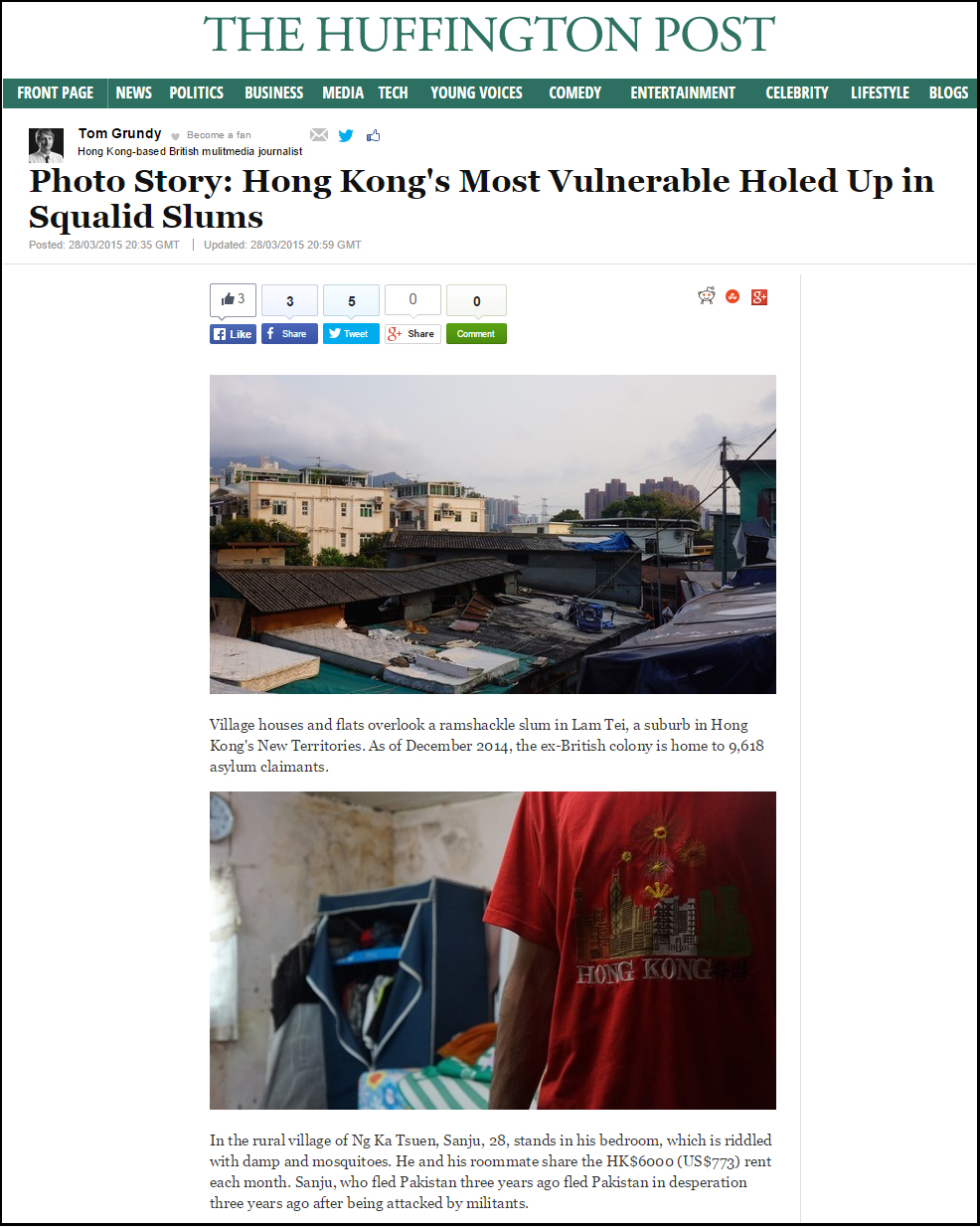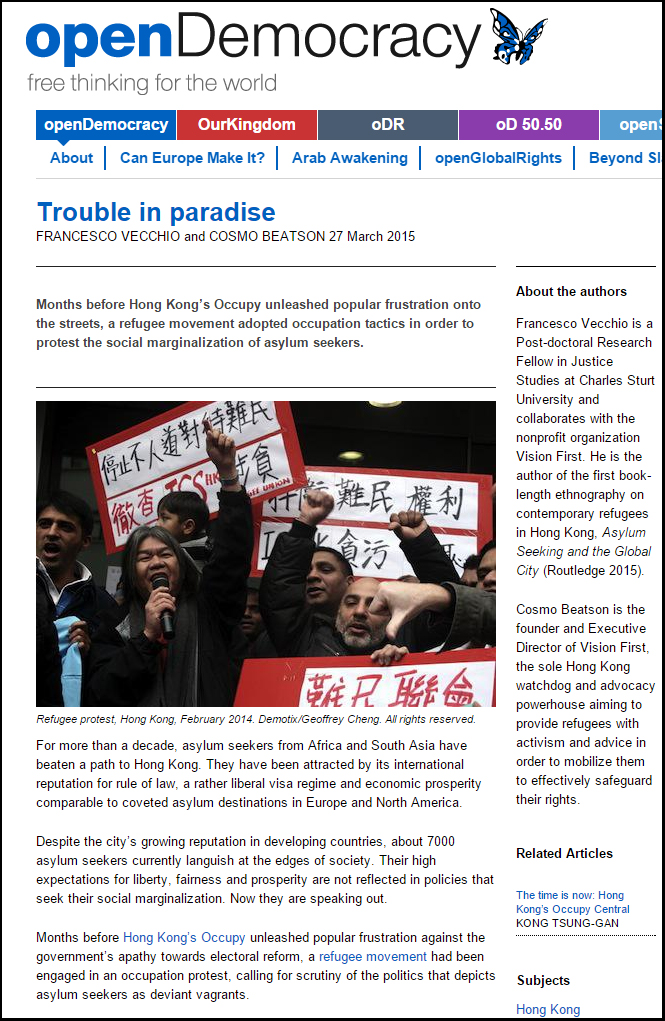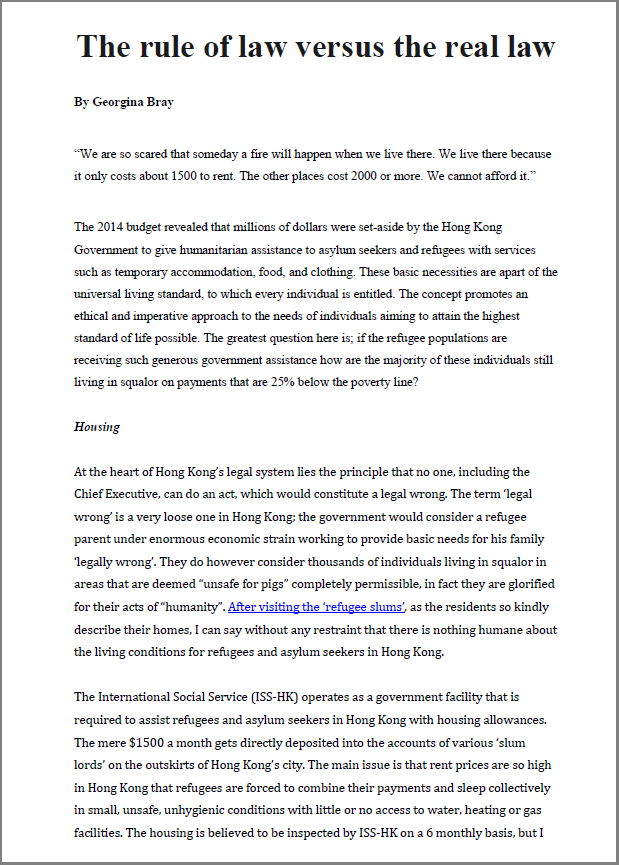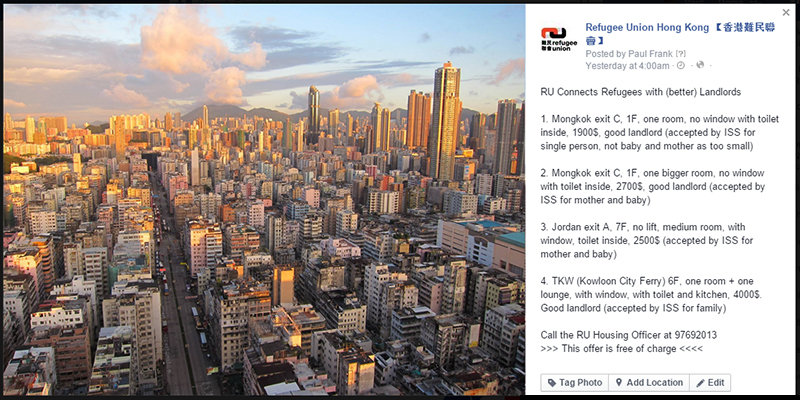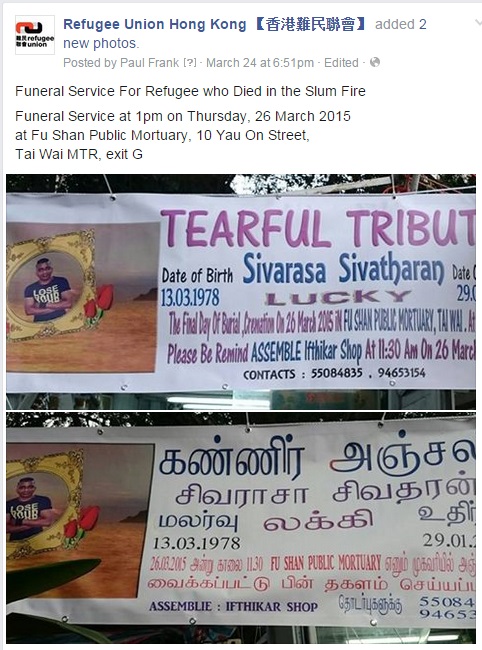It is the system that is abusing refugees
Mar 30th, 2015 | Crime, Food, Housing, Personal Experiences | Comment
I jumped out of a back room window when the police came to my home to arrest me a second time. I had been detained, questioned and tortured before, but refused to stop campaigning at university against state violence and abuse of human rights. The voice inside me was too strong. I could not keep quiet about injustice and I paid dearly for it. I have been in exile in Hong Kong for 9 years.
Recently in Chung King Mansions a student asked me why refugees exploit the liberal visa regime and abuse the asylum system to work illegally (economic interest) and sometimes to sell drugs (criminal interest). What needs to be understood is how the system forces people into these directions by denying the right to work, failing to provide enough assistance and jailing refugees 15 months for working and 7 months for selling drugs. Isn’t this entrapment?
Refugees in Hong Kong are dehumanized, denied basic human rights, don’t get enough support to survive, no proper accommodation, not enough food … people in this kind of situation must find a way to survive and sometimes the easier way is the illegal one. It is not refugees who are abusing the system, but the system that is abusing refugees. Then the government conveniently brands refugees as deviant, as threats to society, when in fact refugees have no legal direction.
I was talking to a resident who agreed that refugees do not engage in serious crime, generally speaking. It is low level offences that hardly register with the public. True criminals don’t need this process, they have better, more lucrative and sophisticated ways to achieve bigger objectives. The crimes that vulnerable refugees commit are worth a few hundred dollars, or thousand at best. It is money we desperately need to pay rent, buy food, clothes and other necessities.
It is very important for people to understand this. Refugees are forced to commit crime. It is typically not their character. They did not come here to be criminals. For example I need money to pay rent. I moved into a windowless room in Mongkok the size of a single bed. I cannot keep a fridge inside and it cost 2000 HK$. I told my ISS-HK caseworker that he must pay the full amount because I cannot work. He refused saying that 1500$ was the maximum and I had to find the rest myself. Suffering these indignity day in and day inflicts a deep wound on our sense of identity.
When I analyze the problem, I realize that it is political and hard to explain people like the student. She thinks that most refugees are economic migrants as that is what she read. She has been exposed to government propaganda that protects vested interests and does not respect the rights of non-citizens. It is hard for people who didn’t suffer state violations to understand state protection failures.
When you meet somebody in Hong Kong within five minutes they ask, “What is your job?” They are appraising your net-worth, how much money you make. Socrates said that first you have to teach citizens values. Hong Kong should create worthy people, not just release them into a capitalistic battlefield where they fight against each other for a piece of the pie. Citizens should learn about social values and appreciated that every person is valuable, even refugees. That’s how I see it.
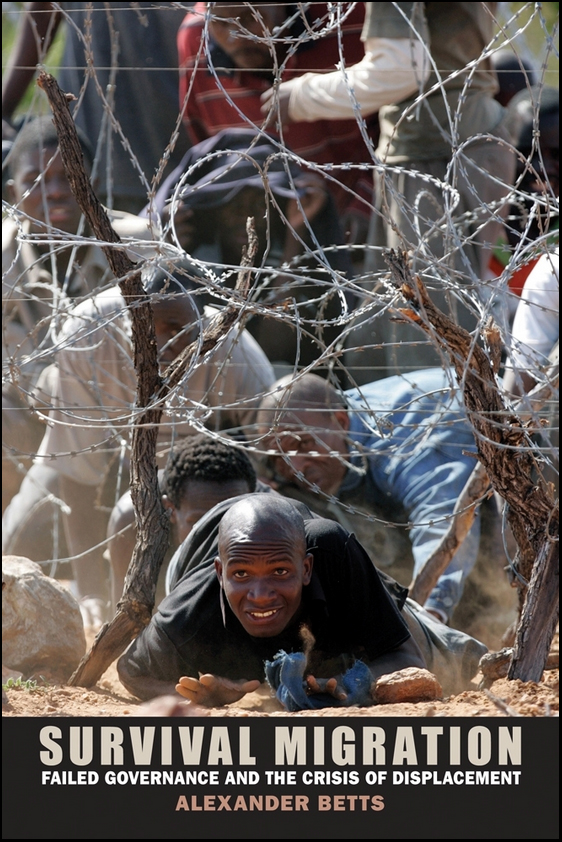
Sai Ying Pun MTR opens one minute from our office (exit B1)
Mar 30th, 2015 | VF updates, programs, events | Comment
Hong Kong’s most vulnerable holed up in squalid slums
Mar 29th, 2015 | Food, Housing, Media, Welfare | Comment
A tearful farewell to Lucky
Mar 27th, 2015 | Housing, Personal Experiences, Refugee Community | Comment
“I knew Lucky from Sri Lanka. We played football together. He was an excellent player. Then our lives were destroyed by the war. After we fled to Hong Kong I cannot say that it was easy for him. Lucky was friends with everyone, but smiling doesn’t mean you don’t have HELL inside.” This poignant remark from an old friend captured the spirit of the funeral service for refugee Sivarajah Sivatharan.
Fu Shan Public Mortuary is nestled in the green hills of Tai Wai, a peaceful location grounded in nature and connected to eternity though the smoke that rises unworried to the sky every fifteen minutes. Almost a hundred friends joined Lucky’s brother Sivaharan, who flew in from the United Kingdom, to bid a sorrowful farewell to a refugee who found misery, not protection in our inhospitable city.
The ceremony was attended by NGO workers and priests who work closely with the community. The general discussion was that life remained miserable; those stranded here for over a decade lamented the lack of progress. A veteran refugee remarked, “Nothing has changed. It is years that I am waiting and nothing good happens. When I arrived my son was one year old. Now he is 12 and he refuses to talk to me on Skype because he doesn’t know me. It breaks my heart!”
The Srilankan refugee community is quietly stoic and confidently brave. Everyone saw death in the face and overcame unspeakable horrors before seeking sanctuary in Hong Kong. The government understands it and the majority of substantiated torture claimants are Eelam Tamil, a minority ethnic group that suffered tremendously through a 26-year civil war and its fearful repercussions.
Lucky’s mourners questioned the circumstances and the responsible those who for years approved his home in a dangerous tin shed: the fixer who rented huts on property he did not own (Land Dept source); ISS-HK who failed to safeguard Lucky’s wellbeing and entered problematic addresses in service agreements; SWD who turned a negligent blind eye to the slums until the fatality. The distraught grievers had nothing good to say about a welfare system that oppressed them.
The Refugee Union denounced those responsible in an earlier statement. “We condemn in the strongest terms possible the heinous act of allowing refugees live in squalid, hygienically unsafe and deadly trapping unauthorized structures … The death of our friend Lucky was as a result of impunity, negligence, malpractice and outright discrimination.” The Union is requesting a Corner’s Examination.
A Hindu priest presided over the cremation and guided Lucky’s composed brother through the rubrics of an ancient ceremony. Father Blaise subsequently intonated the Lord’s Prayer that was softly supplicated by mourners whose voices were drowned by sorrow. Finally, Sivaharan pressed a button and the coffin glided silently behind a purple curtain into consuming flames. Rest in Peace, Lucky!
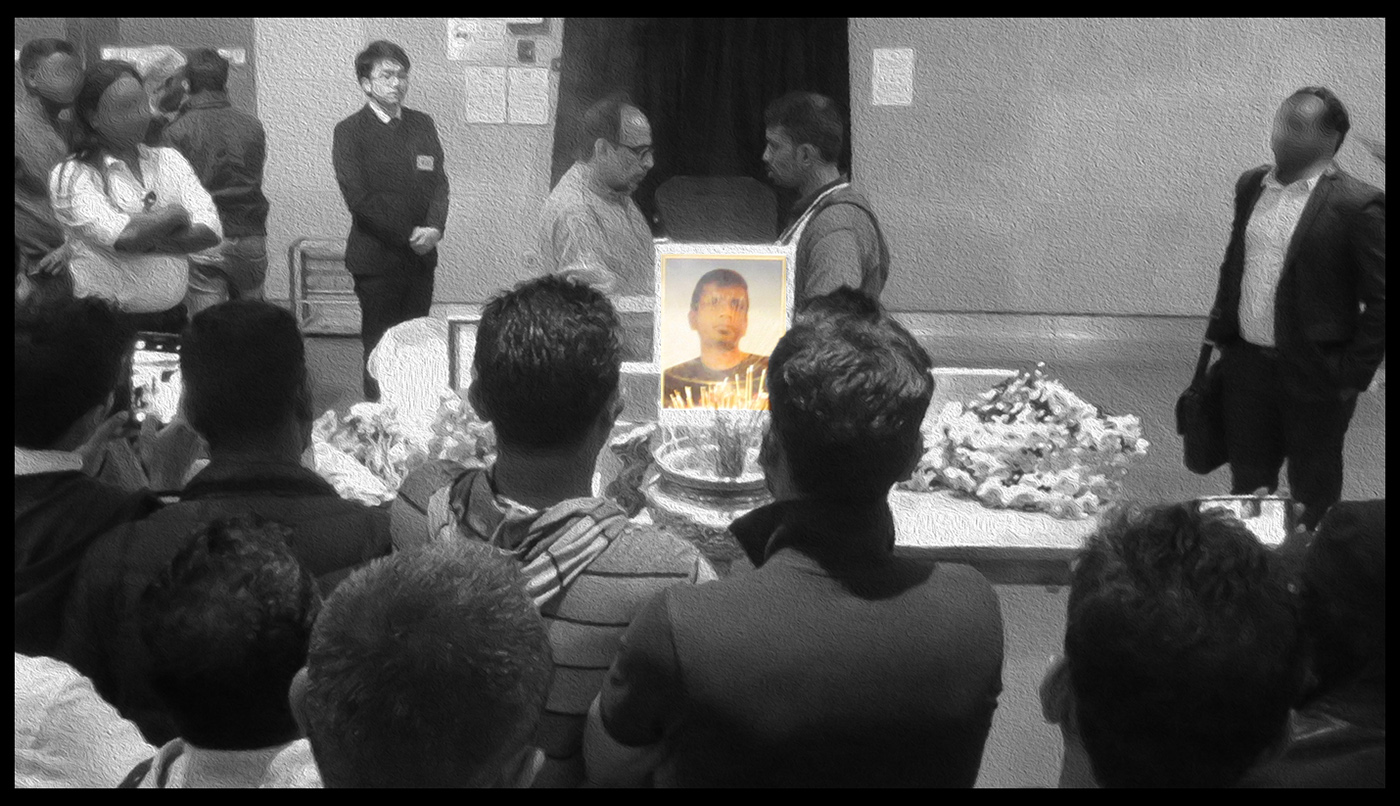
Immigration deploys heavy hand against pregnant woman
Mar 26th, 2015 | Detention, Immigration, Personal Experiences, Rejection | Comment
A 32 week pregnant former domestic worker reported to Vision First that in March 2015 Immigration officers used heavy-handed tactics in an attempt to remove her from Hong Kong International Airport.
Through sheer determination she scored a victory against state machinery that presumably safeguards border integrity with due regard to human rights.
Fitrini (not her real name), 28, was terminated by her Chinese employer when she was two months pregnant, despite discrimination against expectant women being outlawed in this cultured and sophisticated city. She recounts, “I read my contract and nothing said that I could not get pregnant. He didn’t have the right to terminate me. My agency said that they could not help.”
Fitrini fell pregnant with her South Asian boyfriend who supported her throughout the ordeal as they sought a way to stay together. They still plan to marry in the future, “after we find a solution to our problem because after my visa expired I had to leave Hong Kong.” They are in love and wish to raise their child together “if Immigration gave me a chance to stay here,” the mother explained.
In an attempt to stay legal, Fitrini went first to Macao for one month. Upon her return to Hong Kong she was questioned by Immigration and eventually granted a one week visa, “Because I said I have many clothes and things I must collect before I go back to my country.” She then left behind the city, her boyfriend and her dreams of a happy family.
Fitrini’s Muslim family was furious at her predicament. They felt that an unmarried pregnancy brought unforgivable shame to them. “My family could not accept me. Everyone turned against me because of the baby. I could not stay home, so I decided to return to Hong Kong. I hadn’t done anything wrong and thought that Immigration would give me a chance because my boyfriend was here.”
Fitrini narrated her experience. “I had a good record and I hoped Immigration would give me a visa upon arrival. Instead they refused me to let me in. They asked why I came back and I told them I had to meet my boyfriend. They detained me and warned, ‘This time no bargain’. I asked what does it mean? The said a flight had been arranged and I had to leave Hong Kong”
“I said I could not go back because I had problem with my family and I wanted to see my boyfriend, but they would not listen. [With a pretext] to move me to another office, they took me in front of the plane but I knew what it was and grabbed the cabinet and screamed. There were three female officers pulling me but I grabbed the chairs and screamed as many [passengers] watched.”
“I was 30 weeks pregnant and afraid to go back home. I have to stay in Hong Kong to see my boyfriend who was waiting outside the airport. Why they do that to me? They dragged me to the airplane three or four times and I have to fight with them … I was screaming and kicking in front of everyone. This was very shameful but I had no choice.”
“I did not tell them I understand Chinese. When they talked about getting a wheelchair and tying my arms and legs, I warned that I would make suicide before they put me on the plane. For four days they pressured me and used force. I did not believe that Hong Kong Immigration could do this. After four days they let me use my mobile phone and I called outside. Before they refused me to see the lawyer that came with my boyfriend, but then they agree.”
“I never wanted to be as a non-refoulement claimant, but I had to sign [a USM claim] to get in. I only wanted to see my boyfriend to find a way out for our problem. We have a baby and we want to be together. Immigration said I could not have the baby in Hong Kong. They force me to leave, but I fight with them and in the end they released me.”
This incident sheds light on questionable tactics adopted by Immigration officers to remove a vulnerable and pregnant Foreign Domestic Helper considered undesirable and deportable because no longer useful as cheap domestic labour, despite Hong Kong’s ostensible support of human rights.
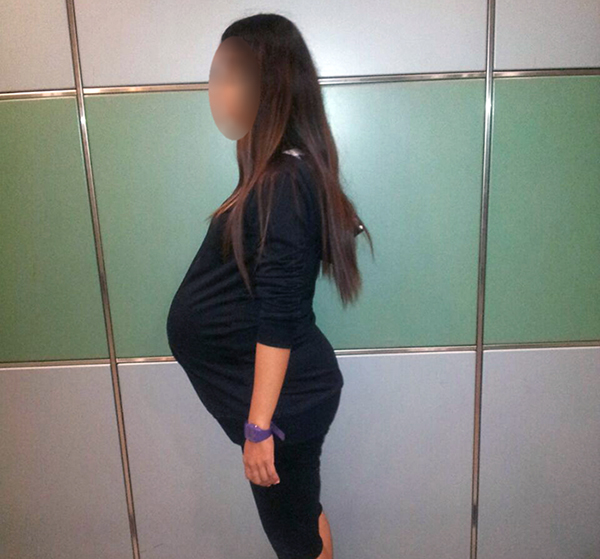
The rule of law versus the real law
Mar 25th, 2015 | Crime, Food, Housing, Immigration, Welfare | Comment
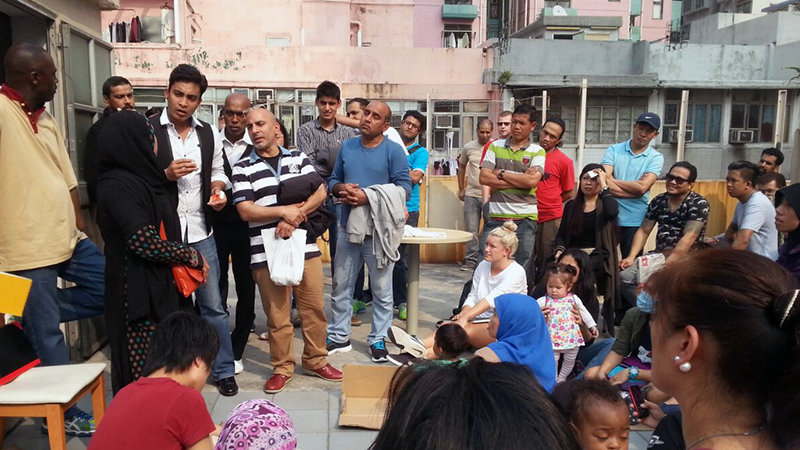
No solution in sight for refugee housing crisis constructed by SWD
Mar 25th, 2015 | Housing, VF Opinion, Welfare | Comment
“My home burned in the Tim Sum Tsuen fire. One month already I just sleep here and there. No one helps me to find a home. I really don’t know what to do. Actually there are many homes, but for $1500 where I can find one? When I try to ask ISS officer, they say only, “I will try to find room for you”. But when will they find it? Also one day a friend told me there was a home near the area of Tim Sum Tsuen. I was very happy, but it was too expensive at $4000. So I tried (to share with) two people, but ISS saying again, “You put $1000. You pay home balance yourself.” (The 2 person allowance is $3000). How I can pay? I have no work, no salary. Still I try to ask ISS, “OK you cut my food money by $500 and my friend’s too.” However again ISS officer said, “I can’t. So sorry,” and closed the phone.” (edited for clarity)
Vision First received this message from a refugee woman who lived in the slum with the rusty gate in Tim Sum Tsuen before it burned down in a blaze on 25 February 2015.
On 24 March 2015, the Refugee Union posted on Facebook rooms for 1900$, 2500$, 2700$ and 4000$, ranging from coffin-size with no window, to a one-bedroom suite. These are current market prices. Guesthouse rooms are no longer provided for homeless refugees, forcing many to share beds or sleep on the floor in the rooms of others. Contrary to what the authorities claim, very few rent subdivided rooms for 1500$ and such old contracts are probably coming to an end. What alternatives are there for refugees?
A new arrival slept on the sofa at Vision First for several months, “I want to get my own place, but the cheapest room is 1900$. How can I pay the 400$ difference every month? Will the government increase the rent allowance?” As a computer engineer he could get a job, but he is afraid of being arrested and being incarcerated for 15 months.
A couple from Sudan wrestled with the exorbitant prices of the cheapest flats for months, “ISS will only pay 3000$ and the smallest place we found was 3800$. I can get a medical certificate to raise my allowance to 2000$, but what about other refugees? Do they have to be sick to get more?”
Since refugees are destitute, the suggestion made by the Refugee Union to the Social Welfare Department is worth exploring: “We request the government, through its appointed officers in SWD, find suitable living locations for refugees and take part in the signing of rental agreements, creating a relationship between SWD and the landlord to ensure safe and practical living conditions are met.” Alternatively, Vision First advanced the proposal of a concerned volunteer who introduced the case for cheap temporary housing – “Refugee-led Settlements Project”
The plight of the disposed tarnishes the reputation of Hong Kong that hoards a surplus of US$ 8.2 billion while its most vulnerable citizens suffer. From cage people to struggling elderly and street-sleepers, the administration has little compassion for the downtrodden. It’s a bleak existence for those eking out a living at the bottom of society and, without work rights, refugees are the hardest hit. A genuine humanitarian consideration is regrettably lacking.


